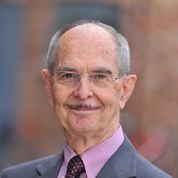Peter Lloyd
PA lead for CHI theme.

Peter is a highly experienced, much travelled and now retired senior academic. He had a second career as a Technical Director in an international public policy consultancy. He retired from full-time work in 2011 to become a carer at home for his wife Ros who suffers from dementia. In September 2017 she was admitted to full-time residential care and he returned to writing and research.
Over 40 years as an academic at the Universities of Queensland, Manchester and finally Liverpool, Peter covered the full spectrum of HE roles. He left Higher Education in 2001 as Professor of Urban Geography, Head of the Department of Geography and Dean of the Faculty of Social and Environmental Studies.
For over 20 years Peter supplied academic expertise on local development and employment to the European Commission and to the OECD. He was an expert on the Digital Transformation and Governance project for (European Commission JRC) and on Future Work and Local Skills Policy (OECD – LEED).
Written output over a long academic career included Location in Space and Modern Western Society (co-authored with Peter Dicken) and over 100 academic papers. Interests shifted over time but were always in the broad fields of local economic development, the social economy and local skills policies.
Peter started his own private consultancy business – Peter Lloyd Associates in 2001 – before being head-hunted to join Ecorys UK (part of Dutch-based international consultancy Ecorys) as a Technical Director. Peter went on to establish the company’s European Policy Division and was its first Director from 2005-2008. He also had a special role as coach on strategy-making for the company. Most professional consultancy work was for the European Commission on local employment, education and skills and innovation policy. He left the company in 2011 to care for his wife.
Peter’s recent activity has been dominated by writing on Covid (see https://peter-lloyd.co.uk) and his work as a Public Advisor for the NIHR funded ARC NWC. These programmes take a focus on health inequalities – dovetailing with a career-long interest in improving the well-being of the poorest people in the poorest locations.